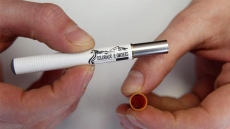Twins should be delivered at 37 weeks of pregnancy – about two to three weeks earlier than usual full term – to minimise stillbirths and newborn deaths, according to scientists, including one of Indian origin.
It is well known that the risk of stillbirth is higher in twin pregnancies, researchers said.
Uncomplicated twin pregnancies are often delivered early in an attempt to prevent stillbirth, but the optimal gestational age for delivery that minimises risks to newborns is not known.
Current recommendations vary on the timing of delivery, starting from 34 up to 37 weeks’ gestation in monochorionic twin pregnancies (twins that share the same placenta) and from 37 up to 39 weeks in dichorionic twin pregnancies (twins that have two individual placentas).
Researchers including Sohinee Bhattacharya from the University of Aberdeen in the UK analysed the results of 32 studies, published within the past 10 years, of women with uncomplicated twin pregnancies that reported rates of stillbirth and neonatal mortality (defined as death up to 28 days after delivery) at various gestational ages after 34 weeks.
Overall the studies included 35,171 twin pregnancies (29,685 dichorionic and 5,486 monochorionic). Study design and quality were taken into account to minimise bias.
The researchers looked specifically at the balance between the risk of stillbirths from expectant management (‘watchful waiting’) and the risk of neonatal death from delivery beyond 34 weeks.

They found that, in dichorionic pregnancies, the risk of stillbirths and neonatal death were balanced until 37 weeks’ gestation.
However, delay in delivery by a week led to an additional 8.8 deaths per 1,000 due to an increase in stillbirth.
In monochorionic pregnancies, the risk of stillbirth appears to be higher than neonatal death beyond 36 weeks’ gestation.
Rates of neonatal morbidity (including respiratory distress syndrome, septicaemia, or neonatal seizures) and admission to the neonatal intensive care unit showed a consistent reduction with increasing gestational age in both monochorionic and dichorionic pregnancies.
Based on these estimates, the researchers suggest that for women with dichorionic twin pregnancies, delivery should be considered at 37 weeks’ gestation “to prevent the significant increase in stillbirths associated with expectant management compared with the risk of neonatal deaths associated with early delivery.”
In monochorionic twin pregnancies, “there is no clear evidence to support routine delivery before 36 weeks’ gestation,” they said.




